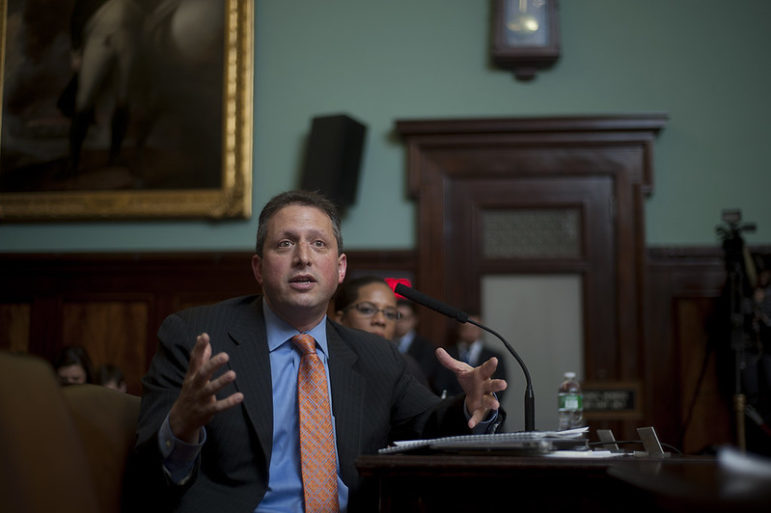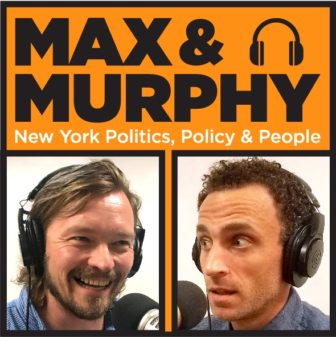Can audits, pension investments, and policy reports combat climate change and craft a more equal New York?

William Alatriste for the New York City Council
Councilmember Brad Lander at a 2014 Council hearing. He’s represented Brooklyn’s 39th district since 2010.The four-way primary contest for city comptroller is the highlight of the 2021 mayoral election’s undercard, thanks to the contestants and to the purse.
The field includes State Sen. Brian Benjamin, Brown- and Harvard-educated and a relative newcomer in Albany; State Sen. Kevin Parker, with 18 years of elected service under his belt; Councilmember Brad Lander, perhaps the city’s chief progressive policy wonk of the post-2009 era; and Assemblyman David Weprin, a veteran financier, regulator and legislator from a well-known political family.
The prize is a job offering an array of roles and powers: that of auditing city agencies, monitoring the $88 billion budget, managing the city’s debt, registering all city contracts, overseeing the $225 billion in pension funds, forecasting economic trends, and operating a policy shop that recent comptrollers have used to weigh in on everything from housing to horse racing.
It’s also a common stepping stone for mayoral candidacies, as Abe Beame, Jay Goldin, Alan Hevesi, William Thompson, John Liu and, this year, Scott Stringer, illustrate. The only comptroller in recent memory not to run for mayor was Elizabeth Holzman, who ran for the U.S. Senate instead.
That said, it’s not a job that’s well understood, as Lander told WBAI’s Max & Murphy Show on Wednesday.
“There’s a lot of folks who aren’t sure what the comptroller’s office is or does but it’s such a critical office at a moment like this when the city is facing such a fiscal and economic challenge,” he said.
“When new leaders come into office next year we’ll be tasked with figuring out how to rebuild our economy and get our city moving forward again. And we’ve seen crises like this in the past, out of the 1970s and after 9/11, city leaders really made the choice to give the city over to business elites and thought that real-estate development would bring our city back, and some jobs got created but a much more unequal city was created.”
On the other hand, Lander argues that coming out of the Great Depression, the city was able to invest in subways, CUNY, Mitchell-Lama housing and other efforts to spread opportunity broadly. That’s the prescription he thinks the next comptroller can help shape.
One additional challenge to that effort, however, is that the city’s financial fundamentals aren’t as strong as they should be given the years of growth that preceded the COVID-19 collapse. “We didn’t do things we should have done in earlier fiscal years,” Lander said. “We didn’t create a rainy day fund after coming out of the last fiscal crises and we should have.”
Hear the full interview, including Lander’s plan for using the office to combat climate change, his approach to working with the next mayor, and what he thinks of an uncomplimentary nickname, below.
Parker also appeared on Wednesday’s show but technical problems interrupted his interview at an early point; Benjamin and Weprin are scheduled to appear on Max & Murphy on Wednesday, January 27, at 5 p.m.










One thought on “Brad Lander Explains His Vision for an Activist Comptroller’s Office”
A rainy day fund is always a must